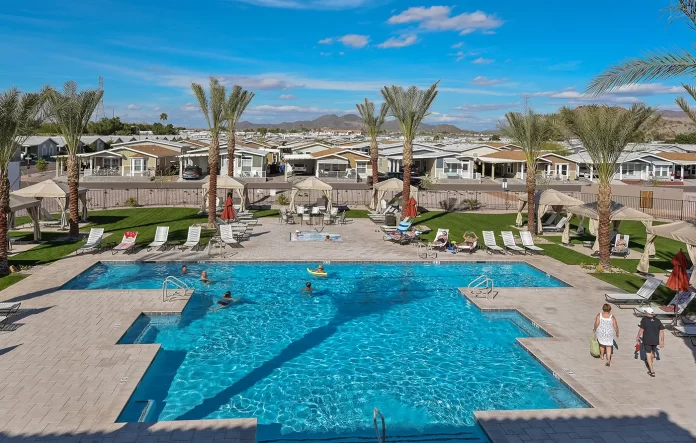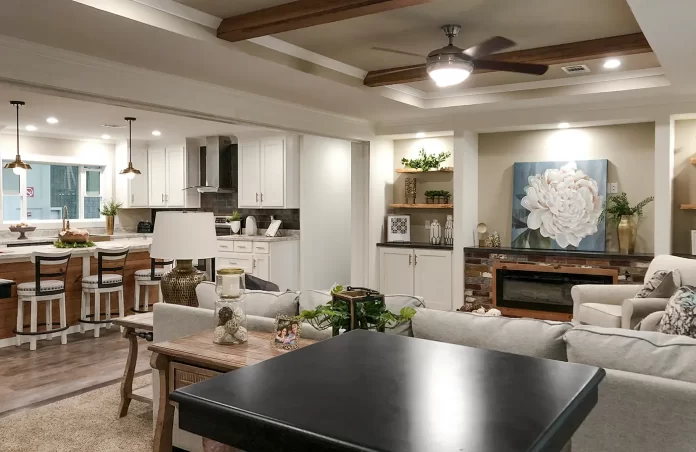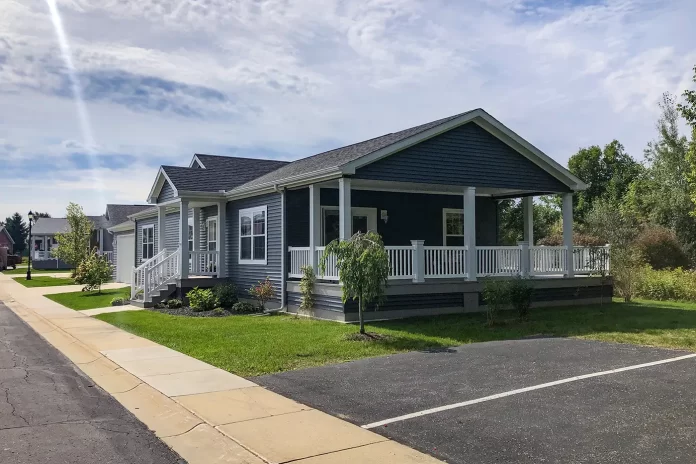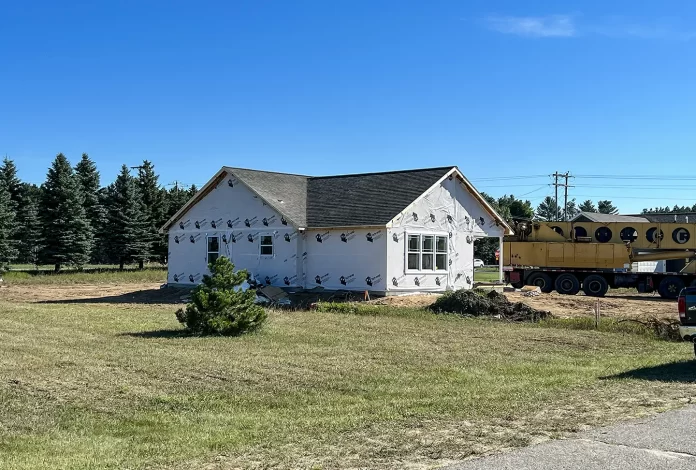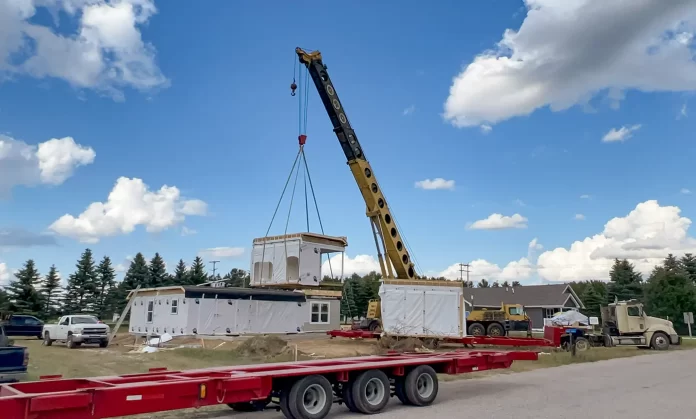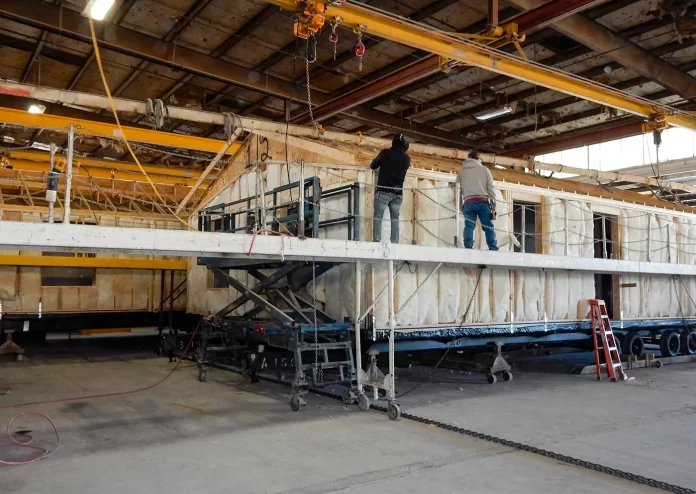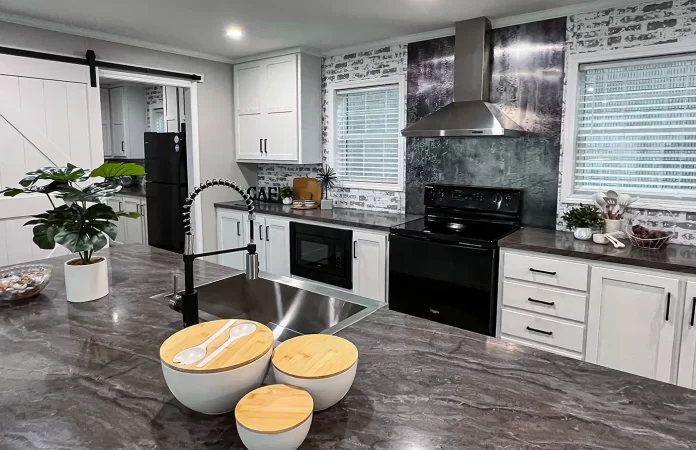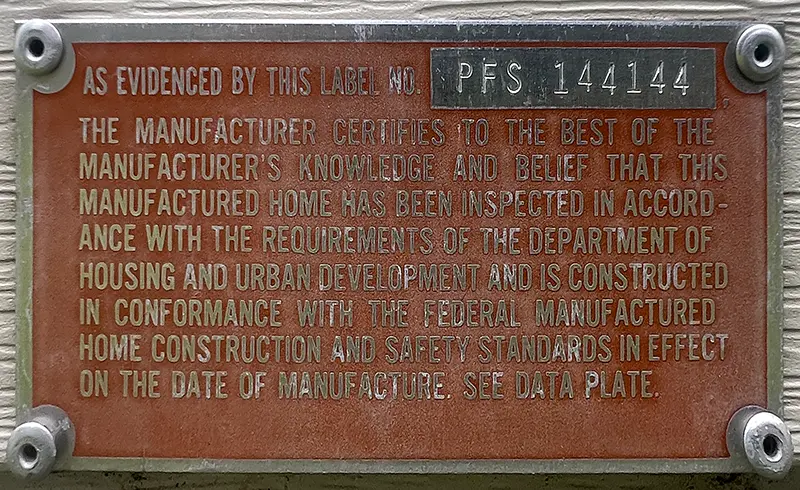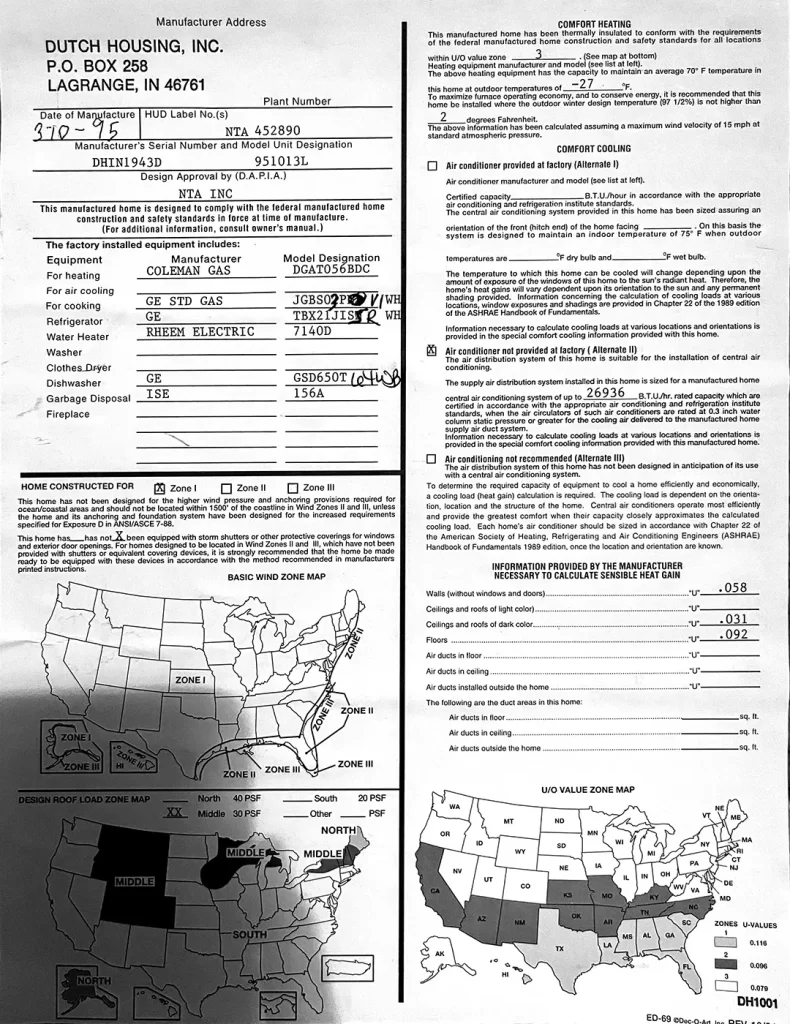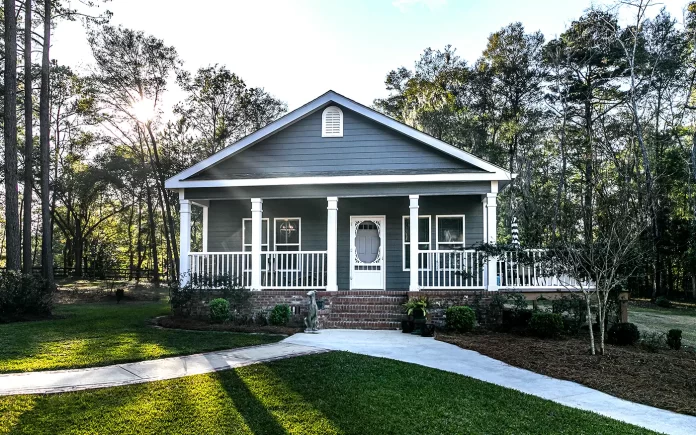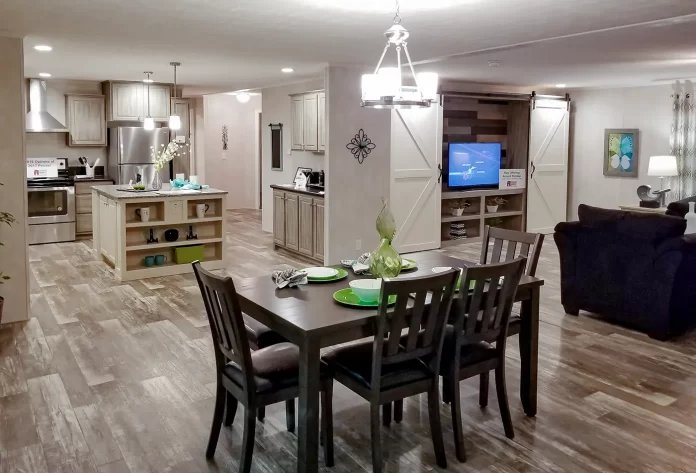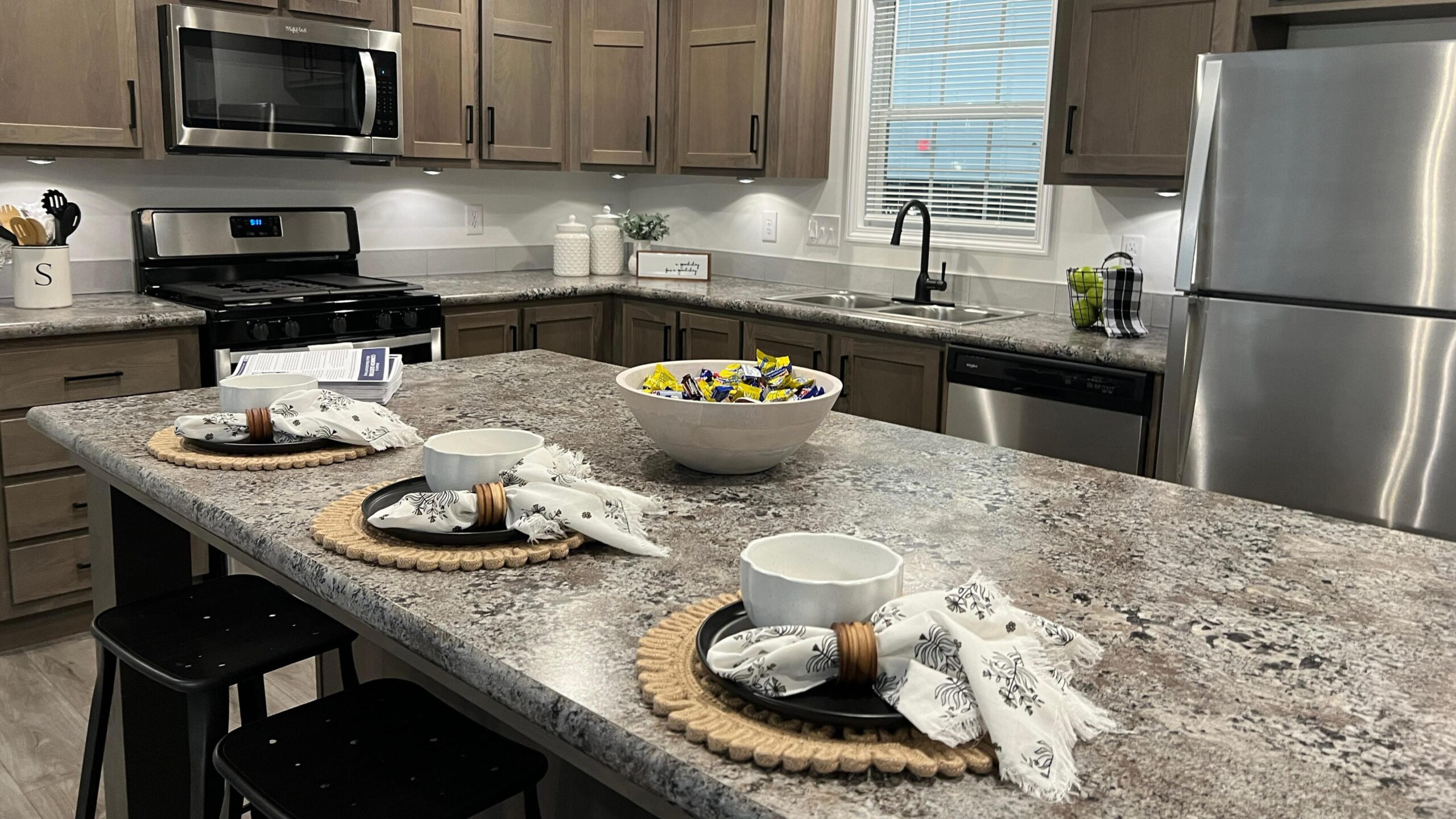What are the most popular loans for financing a mobile home?
We will cover four types of loans for financing a mobile home. We will define the product and discuss options with mobile home financing companies who provide that specific type of loan. This post will provide details on the following loan products:
- Chattel lending for community operators (home-only loan)

- Land-home mortgage
- Construction to permanent home loan
- Chattel lending for street retailers
Chattel loans for a mobile home are for the home itself. Others types of loans might include land financing, too. And the route you take may change depending on whether you are looking to buy a new manufactured home, a pre-owned mobile home, and whether you want to live in a community or on private property.
Buyers looking for the right kind of loan for a mobile home have several options to consider. And the list seems to be growing. Mobile and manufactured home finance is opening up again, too. The new options also can create confusion about a correct course of action.
Financing a mobile home with bad credit, in particular, has been a difficult proposition for mobile home lenders and borrowers, especially in recent years. That is why many communities offer financing for mobile homes.
Chattel lending from the buyer’s perspective looks much the same as any other type of manufactured home lending. However, if the buyer chooses among all other options to pursue chattel for new or used mobile home financing, the buyer carries the loan. It then can be reassigned to the community owner for financing.

What is a Chattel Loan?
A chattel loan is a loan for personal property, which can include manufactured home loans. The home, if it’s being financed without an associated piece of land (real estate), is considered personal property. Chattel loans often have a lending limit that is lower than a mortgage. In addition, interest rates can be higher.
Chattel Loan Details
If the chattel finance goes through a community owner, the community owner can set their own mobile home loan rates. They can set them to be competitive with the banks and credit unions.
Of course, the rate is dependent on the borrower’s credit-worthiness too; the most common considerations are debt-to-income ratio, credit score, and unpaid debt, though there are considerations for the latter.
The intent of this post is to define the features of specific manufactured and mobile home loan types. We hope to provide an understanding of which product may be of most benefit to you.

How Can I Finance a Home in a Community?
Community operators who have yet to organize a lending operation still can provide assistance to buyers in need of a loan for a mobile home. Chattel lending for buyers working with a community operator who provides information and limited guidance is a viable option with the recent “loan originator” definition change in SB 2155.
Park Lane Finance Provides Chattel Loans for the Community Operator
“We do direct and indirect loans,” said Luke Foster, market development manager for Park Lane Finance. “If there’s a retailer in the community, we work with the retailer. If there is a community manager who’s helping a customer with a home loan, we can work with the manager as well.”
Park Lane will receive a contract from the community operator with an indication that the buyer will contact them directly. The buyer will work directly with Park Lane. However, Foster said he and his colleagues are very willing to work with operators and managers simultaneously. Being that community operator guidance is no longer in question under Dodd-Frank rules, the on-site professional’s involvement is a great service to the potential buyer and residents.
Community operators and managers still cannot quote a rate, discuss terms or talk about approval with a client. However, the community owner can comfortably provide options for a loan on a mobile home and help the customer organize materials needed to secure a loan.
“If I was sitting there with a community operator who wanted no part of the loan transaction, I would tell them they are missing out,” Foster said.
Consumer Interest On the Rise
Foster said the flow of loan applications has been increasing for four consecutive years. Much of that is due to an improving economy and changing perceptions about manufactured housing.
The increasing business has as much to do with the ‘why not’ question toward manufactured housing as much as it has to do with the ‘why’ surrounding the price and value proposition for site-built homes.
“There’s an affordable housing crisis out there, and in good markets where people want to be, manufactured housing is a great option,” Foster said.
What is a Land-Home Mortgage Loan?
A land-home loan is a mortgage that allows the buyer to obtain an existing or under-construction manufactured home. The land is financed by a later phase of the same loan. Borrowers receive a payout, or “draw”, for the home or home construction, then a draw to close on the real estate. Finally, they get a payout to have the home delivered, sited and finished.
It’s in the Name: A conversation with Mike Scheffler, Mortgage Banker and Business Development Manager for Land Home Financial Services, Inc.
Since 1988, Land-home packages have been the backbone of Land Home Financial Services’ business.
Land-home packages provide loans for manufactured homes in two ways:
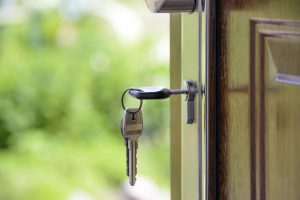
- if the home is to be placed on owned land or…
- if the home is to be placed on land in the process of being purchased (in conjunction with the home)
“The beauty of these manufactured home loan packages is they work with new construction and existing homes,” said Scheffler.
The packages on a loan for a manufactured home also work with government programs like VA and FHA. For qualified borrowers, these loans require a smaller down payment than most conventional loans, and the credit score requirement is more flexible (accepting scores as low as 620).
If the subject land is under ownership prior to the financing, the cost of the mortgage is even more affordable.
“Any equity the future borrower has in the land could be used to offset down payment and closing costs,” said Scheffler.
Options Within Land-Home Finance
The facets of these land home packages don’t stop there. LHFS offers several different down payment assistance options depending on home product, credit, and qualified income.
Nationally licensed, LHFS has over 100 branches across the country. It emphasizes nationwide resources with a local feel. At every branch, a local expert is available to answer questions. The goal is to ensure home loan applicants feel at home during the approval process. In addition, Land Home provides specialized service to those in need of unique products, like its specialty, the land home packages.
“We’ve been doing this for over 30 years,” Scheffler said. “Land Home Financial gets its name from doing Land-Home Manufactured Housing Loans. After that amount of time dedicated to a single product line, our process has evolved and our relationships on GSE side are second to none. All of this equates to a better experience for the borrower and the retailer.”
Scheffler noted LHFS is a lender, not a broker. It provides an in-house, specialized team to originate and service loans for a manufactured home. Land Home works with Fannie Mae and Freddie Mac, VA and FHA to help create better programs for Manufactured Housing. Much of its success, Scheffler said, has to do with its sticking to the mentality of the community banker.
“When you call us, you will be assigned a loan officer who will see you through the entire process, he said. We originate and service loans. When you need something from us, you can contact your loan officer directly. There’s no need to wade through an automated phone system or try to find the answers you need from an operator outside of the organization.”
That service extends to a particular land home package, namely, construction to perm, or C-to-P.

What is a Construction to Permanent (CtoP) Loan?
The “construction to permanent” loan for a manufactured home includes the ability to purchase land. From there, “draws” or payments are available for site improvements. The draws work in an order similar to what follows…
- To order and pay for the home
- For the home delivery and setup costs
- When the home is placed and the loan becomes a mortgage
“We specialize in this product, Scheffler said. “Construction to permanent makes up a majority of our MH business. It’s what we’re good at and specialize in.”
Loan terms for C to P mortgages are akin to site-built home mortgages with that of a modular home. If the mortgage is for a manufactured home, the rate may fluctuate a bit depending on the applicant’s credit rating and the loan to value ratio.
In addition, its in-house construction management team is one of the benefits of working with LHFS.
“When you fund a construction loan and release money at different stages of the project, there are checks and balances in place to determine when that money is released. We manage that process ourselves where a lot of other lenders hand that out to a third party, which runs the risk of derailing the project and creating a lot of headaches for everyone involved,” Scheffler said.

How Does Chattel Lending for the Street Retailer Work?
The buyer often will have an idea for a community or other existing land when they enter a retail sales center. When they select a home they’d like to purchase, the retailer will share information on a number of lenders who may be able to provide financing. Among those choices will be an option to apply for a chattel loan, which is a personal property loan for only the new home and with no land associated.
Cascade Financial Provides Chattel Loans for Street Retailers Who Assist Customers with a Loan for a Mobile Home
Cascade Home Loans started in 1999 and exclusively provides loans for buying manufactured homes. In 2017, the lender expanded into chattel lending for buyers who want to purchase through a street retailer.
A street retailer or “street dealer” is the traditional model home center approach to selling and buying manufactured homes.
“We were only offering VA and FHA manufactured home loans,” Cascade President Cody Pearce said. “However, we already had those relationships in place, and we started to expand loan offerings as a natural progression in manufactured home finance.
“We really have two critical clients that we work really hard to keep happy. That’s the retailer and the borrower,” Pearce said. “It can be a complicated process, and we try really hard to create a great experience, for the borrower in particular.”
What Does the Customer Experience in Shopping for a Loan for a Mobile Home?
When a potential customer finds a home retail center, they often will already have a manufactured home community or a parcel of land in mind for the new manufactured home.
The buyer then decides on a house, and fills out a loan application. The loan application most often goes to multiple lenders. This is why Cascade works to get a same-day response to the applicant. During that initial contact Cascade assigns the borrower a credit manager as a single point of contact.
Documents Needed to Secure A Loan For A Mobile Home
Checklist of items required to finance a mobile home:
- Closing documents
- Contract
- Credit application
- Forms of ID
- Ability to repay form
Chattel Lending Can Reduce Finance Wait Time
The borrower and credit manager work together to compile all of the needed information and documents to get the buyer to closing.
“It could be as rapid as three days, and it can take more than a week to close. How involved the borrower is in getting documents together determines much of that,” Pearce said.
Regardless, that turnaround time is significantly shorter than that for a land-home plan.
“Our experience has been that even with some additional risk on the loans, chattel lending through the retailer has been a good move for the industry. It provides home ownership opportunities for buyers who might not otherwise be able to purchase a manufactured home,” Cascade Financial Executive Vice President Gerron Dover said.
Cascade gets about 2,500 loan requests each month for financing manufactured homes. The lender is based in Gilbert, Ariz. However, it does business in all the lower 48 states. It also lends on manufactured home real estate (FHA/VA) as well as chattel in both communities and on private property.
“There was a time when it was thought maybe no one would be able to enter this space and meet that need,” Pearce said.
Editor’s Note: This post is intended as an ongoing resource from MHVillage to help buyers find a loan for a mobile home. We will add and update information as new mobile home loan packages become available and as finance options expand through legislative and policy change. So, please bookmark this site and refer back as needed. Thank you for reading!




